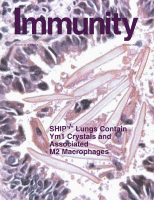Selected Publications

- Two papers published in Experimental Hematology in 2017-18, revealing the novel role of Tet2 in regulation of macrophage-mediated inflammation and clonal expansion. See Cull et al. and Abegunde et al.
- Translational work in humans, published in Blood Advances, showing comorbid and inflammatory characteristics of clonal hematopoiesis, especially driven by mutations in TET2 and DNMT3A. See Cook et al.
- Novel connection between TET2 inactivation and pulmonary arterial hypertension, published in Circulation, in collaboration with the group of Dr. Stephen Archer. See Potus et al.
- Novel finding of association of clonal hematopoiesis with worse kidney function and anemia in patients with advanced chronic kidney disease. Please see the pre-print by Vlasschaert et al.
For a complete list of publications authored by Dr. Rauh, go to the publications list or look at his Google Scholar profile.
Most Significant Contributions
1. TET2 as a novel regulator of clonal hematopoiesis (CH) & inflammation.
As a Clinician-Scientist at Queen’s, Dr. Rauh & lab identified the methylcytosine dioxygenase, TET2, as a regulator of macrophages. Loss of TET2 leads to impaired resolution of inflammation (Exp Hematol 2017). This work is contemporary with similar studies in Science & NEJM & was the most cited article at Exp Hematol since 2017. TET2 mutations are common drivers of clonal (CH) & malignant hematopoiesis (MDS, AML). Dr. Rauh’s group found TET2-mutant clones thrive in an inflammatory environment (Exp Hematol 2018). TET2 mutations are a novel link to the immune dysregulation observed in aging & human myeloid cancers (J Leuk Biol 2017; Leuk Res2018). Dr. Rauh’s expertise at the intersection of inflammation/CH has been recognized by several invited review articles (eg. Exp Hematol & IJMS, 2020), and editorials (eg. JACC), co-chairing the first open CH abstract session at ASH 2018, & invited peer-review of a CH articles submitted to Nature, NEJM, JACC, & Blood.
2. TET2/DNMT3A mutations or deficiency are associated with novel diseases.
Work from Dr. Rauh’s group is the first to connect human CH with inflammatory cytokines, novel comorbid diseases & poor performance status (ASH 2017 oral abstract & “Highlight of ASH”, featured in ASH Clinical News 02/2018) & published at Blood Advances. Dr. Rauh & Dr. Archer’s groups have demonstrated Tet2-deficient mice as a novel model of pulmonary arterial hypertension (PAH) & associated TET2/DNMT3A mutations & dysregulated expression with human PAH. This work was featured as an award-winning oral at AHA 2018 & published in Circulation(2020). More recently, with his group and collaborators, he has contributed to novel associations of CH with kidney disease and infectious disease (medRxiv pre-print and Nat Commun, respectively).
3. Immunology expertise: the role of Ship1 in innate immunity & macrophage activation.
At theTerry Fox Lab/BC Cancer Agency, Dr. Rauh discovered Ship1 represses murine M2-macrophage programming, asthmatic lung pathology (cover feature: Rauh MJ et al. (2005). Immunity 23: 361-74) & osteoclast activation (internal Nat Med authorship, 2002). An oral SHIP1 activator (AQX-1125) shows promise in human asthma trials & inflammation models. With Drs. Sly & Krystal, he identified an essential role for Ship1 in endotoxin tolerance (Sly LM, Rauh MJ…Krystal G (2004). Immunity 21: 227-39). Total citations >860.
4. Transformative pathology.
Through publications in Leuk Res, J Hematopath, Br J Haematol, Eur J Haematol & Blood, Dr. Rauh has advanced diagnostic awareness of hematopoietic cancers. With a CFI infrastructure grant, he established QMyPath, a personalized myeloid pathology & research laboratory at Queen’s. With external funding (CCSRI; OICR; CIHR) & his role as a Transformative Pathology Research Fellow (OICR), Dr. Rauh is advancing diagnostic/prognostic testing for myeloid cancers using targeted NGS, including in a large North American (SWOG/CCTG) clinical trial (J Clin Oncol 2017, JCO PrecisionOncology 2019). This work has facilitated the adoption of clinical NGS at Kingston Health Sciences Centre, were Dr. Rauh and team are tracking clinical utility and advocating for more widespread testing and funding (J Mol Diagn 2021).
5. Knowledge translation.
Dr. Rauh is an outspoken proponent of bridging the clinical-research divide & was a founding member of the MD/PhD Training Program Committee at Queen’s. He has improved myeloid cancer diagnosis & care as a member of the Canadian MDS Consortium, the infrastructure for myeloid cancer clinical trials research (with SWOG & CCTG), & test development (with OICR & ThermoFisher). Through consultations with the Pediatric Oncology Group of Ontario & Cancer Care Ontario Dr. Rauh has improved laboratory practice for malignant hematology patients.